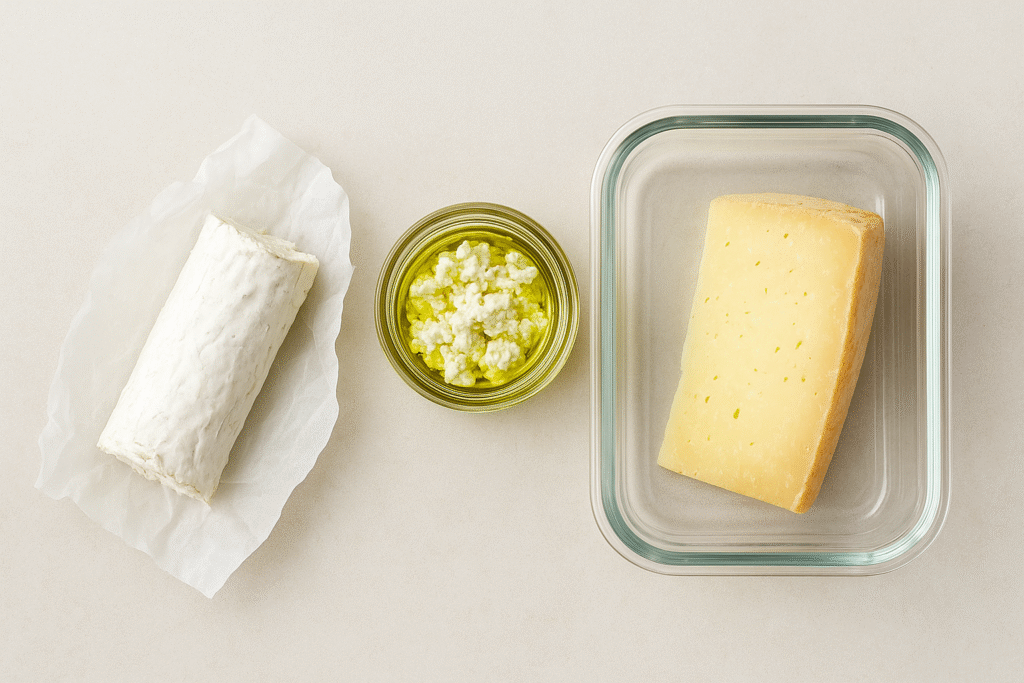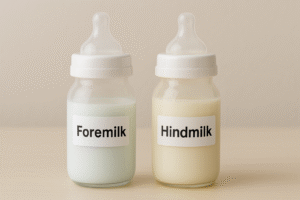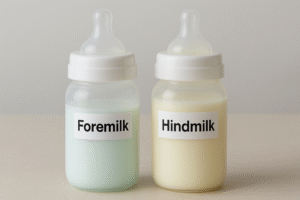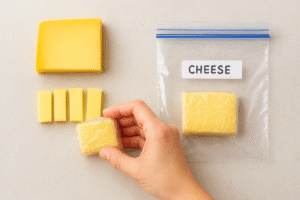Keeping Your Goat Cheese Fresh and Flavorful
Goat cheese, or chèvre, is beloved for its creamy texture and tangy flavor — but it’s also notoriously delicate. Unlike hard cheeses, goat cheese spoils faster due to its higher moisture content. That’s why proper storage makes all the difference in keeping it safe, soft, and full of flavor.
Whether you’ve just picked up fresh goat cheese from the market or opened a store-bought log, understanding how to store it correctly will help you extend its shelf life and prevent waste.
👉 You might also want to learn How Long Does Goat Cheese Last in the Fridge? for detailed freshness timelines.
1. Understanding the Types of Goat Cheese
Goat cheese comes in several forms — fresh, aged, or flavored — and each type needs slightly different care:
- Fresh goat cheese (chèvre logs or crumbles) – High in moisture; best refrigerated and consumed within 1–2 weeks.
- Aged goat cheese (semi-hard or hard) – Lasts longer; can stay fresh up to 6 weeks when properly wrapped.
- Flavored or marinated goat cheese – Store in oil or airtight jars to maintain freshness and taste.
The storage process always depends on moisture content, not just the packaging date.
2. Best Practices for Storing Goat Cheese in the Fridge
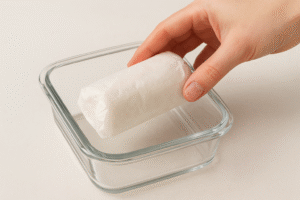
The refrigerator is your best friend for preserving goat cheese freshness. Follow these proven storage steps:
- Wrap it right: Use wax paper or parchment paper instead of plastic wrap. It allows the cheese to breathe and prevents mold growth.
- Seal and protect: After wrapping, place it in an airtight container or resealable glass jar.
- Temperature zone: Store goat cheese in the vegetable drawer or lower middle shelf, where temperatures stay consistent (around 39°F / 4°C).
- Avoid cross-contamination: Keep cheese away from strong-smelling foods like onions or fish. Goat cheese easily absorbs odors.
💡 Pro Tip: If you’ve opened a pre-packed goat cheese log, replace the plastic wrap with parchment before storing again. This helps maintain natural moisture and prevents the sour, ammonia-like smell that develops from trapped air.
3. How to Store Goat Cheese in the Freezer (for Longer Shelf Life)
Freezing goat cheese is safe — but it slightly changes the texture. It becomes crumbly after thawing, which makes it better suited for cooking rather than spreading.
Here’s how to freeze it safely:
- Cut the cheese into 4–6 oz portions for easy use.
- Wrap each portion in plastic wrap, then place in a freezer-safe bag.
- Label with date and type.
- Store flat in the freezer for up to 2–3 months.
When ready to use, thaw slowly in the refrigerator overnight for best texture.
👉 For detailed freezing tips, read Can Goat Cheese Be Frozen?.
Remember, freezing alters texture, making it crumbly. For best cooking results, learn from our Can Goat Cheese Be Frozen? guide and use thawed cheese in baked dishes.
4. Tips for Storing Fresh Crumbled Goat Cheese
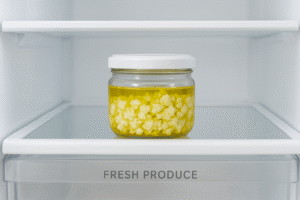
Crumbled goat cheese dries out quickly once opened. To keep it creamy:
- Transfer to a small airtight glass jar.
- Add a light drizzle of olive oil to coat the surface.
- Store at the back of the fridge (not the door).
This helps maintain moisture and enhances flavor. You can safely keep it this way for 7–10 days.
5. How to Tell If Goat Cheese Has Gone Bad
Check these signs before using stored goat cheese:
- Sour or ammonia smell
- Slimy or sticky surface
- Yellowish color or visible mold
- Extremely dry or cracked texture
If you notice any of these, it’s best to discard the cheese. Eating spoiled cheese can cause digestive discomfort or foodborne illness.
According to the U.S. Food & Drug Administration (FDA), soft cheeses like goat cheese are more prone to bacterial contamination if stored improperly, especially during warm months.
FAQ: Storing Goat Cheese the Right Way
Q1: Can I store goat cheese in olive oil?
Yes. Storing small goat cheese rounds or crumbles in olive oil keeps them fresh and adds flavor. Refrigerate and consume within 2 weeks.
Q2: Can I leave goat cheese out overnight?
No. Fresh goat cheese should not sit at room temperature for more than 2 hours (CDC guideline).
Q3: How long does unopened goat cheese last in the fridge?
Typically 2–3 weeks past the purchase date if kept sealed and refrigerated properly.
Q4: What’s the best way to thaw frozen goat cheese?
Always thaw in the fridge overnight. Never microwave, as it alters texture and flavor.
Conclusion: Keep It Cool, Wrapped, and Fresh
Proper storage can make your goat cheese last longer, taste better, and stay safe for your family.
Always wrap it well, refrigerate immediately, and freeze only when necessary. A few mindful steps will help you enjoy that perfect creamy bite every time.
👉 For more detailed dairy guides, check out What Does Goat Cheese Taste Like? or learn from the U.S. FDA Dairy Safety Recommendations.

